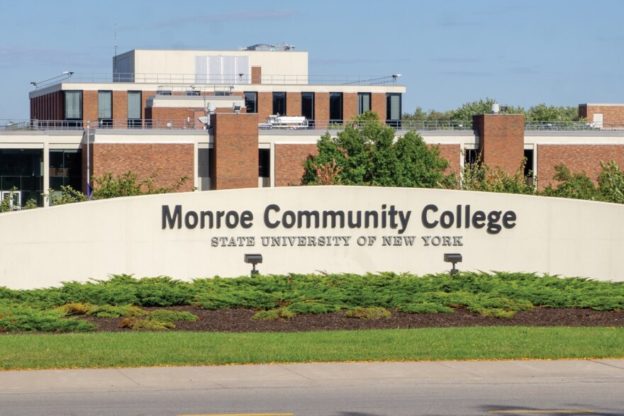1 April 2023
Community Colleges must be the home for pedagogical innovation. The needs of Community College students are constantly changing, and in no other academic setting do we see students juggling responsibilities outside of the classroom (childcare, jobs, family emergencies). Community College educators must adapt to students’ needs by piloting new programs, by freshening their curriculum, and by collaborating on ideas, projects, and initiatives.
The English and Transitional Studies Departments at Monroe Community College (MCC) have been exemplary in addressing students’ needs by building a strong Accelerated Learning Program (ALP), by collaborating on online education and pedagogical practices, and by working on new models for placement. Most recently, faculty members from both departments have collaborated on creating a new ENG 101 Pilot class for students who may have otherwise struggled in a traditional ENG 101 course. The course is capped at 15 students, and the students are receiving more 1:1 instruction and conferencing than what could realistically be accomplished in a 24-student classroom. Even more importantly, faculty are emphasizing reading strategies as a steppingstone for comprehensive writing instruction. Rather than simply assuming that students have college-level reading comprehension, instructors are providing students with refresher lessons that focus on more general reading strategies – previewing, predicting, inferences, and organization – to more granular strategies – sentence structure, thesis placement, annotating, and analysis.
Although this pilot program is still in its nascent stages, MCC faculty are encouraged by this “less is more” approach to teaching English Composition. By slowing down the week-to-week schedule, and by addressing the students’ reading and affective needs, faculty are building stronger bonds with students and are seeing how the reinforcement of certain strategies could help students produce more interesting and creative written work. As this pilot program unfolds, it will be interesting to compare student success rates with their ALP counterparts and to address ways that the pilot could improve with practice. These types of initiatives and collaborative projects are precisely why teaching at a Community College can be such a rewarding experience!

